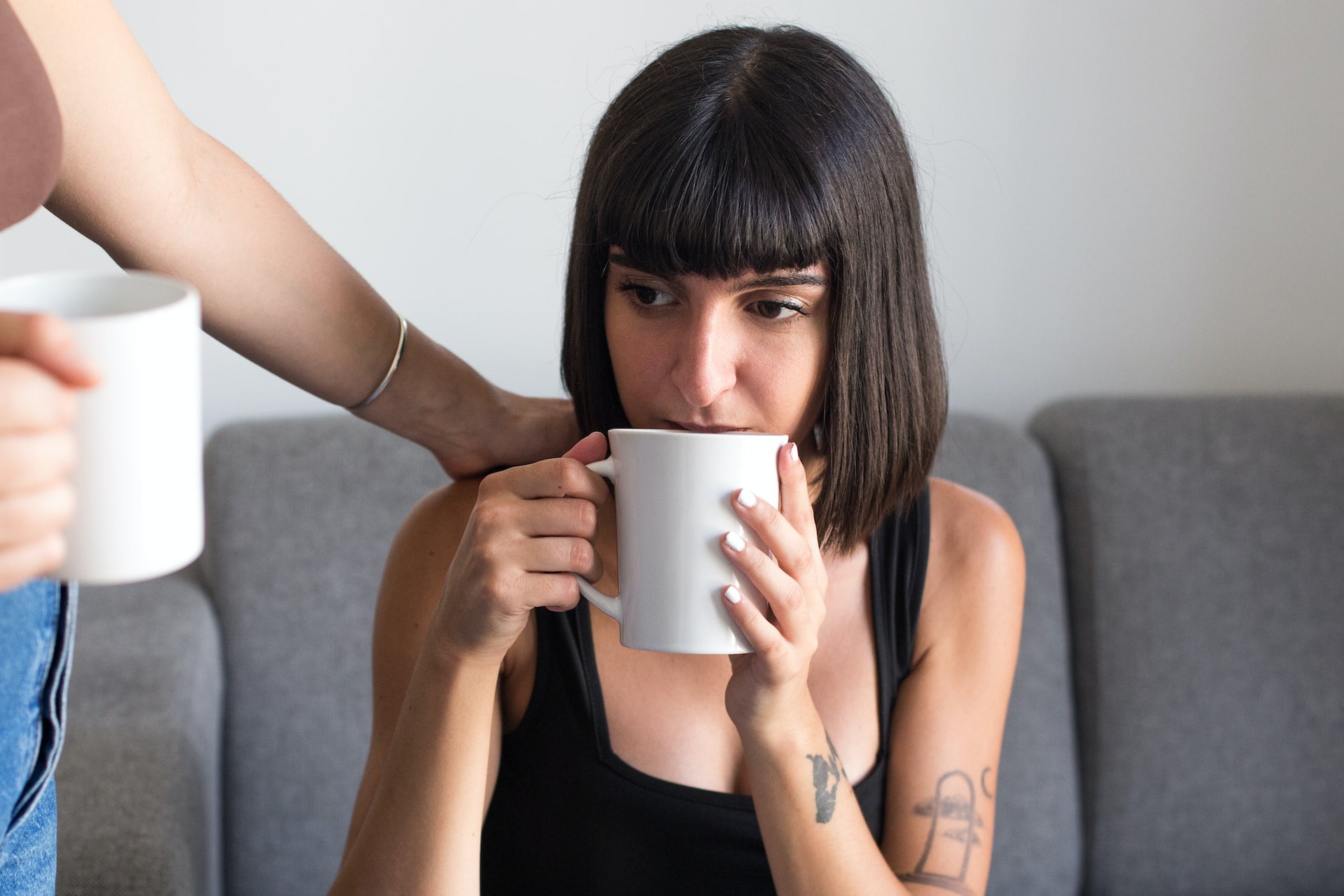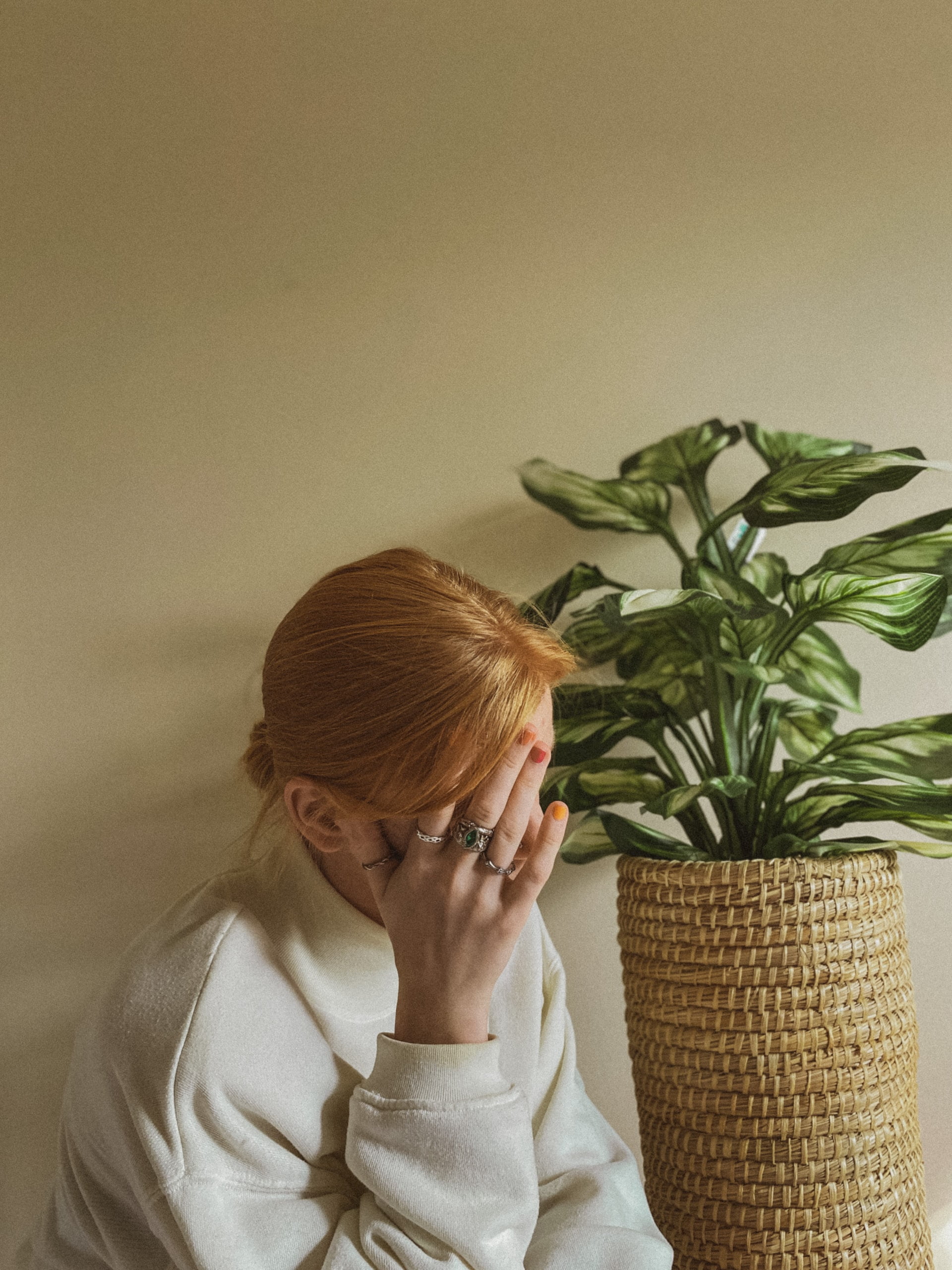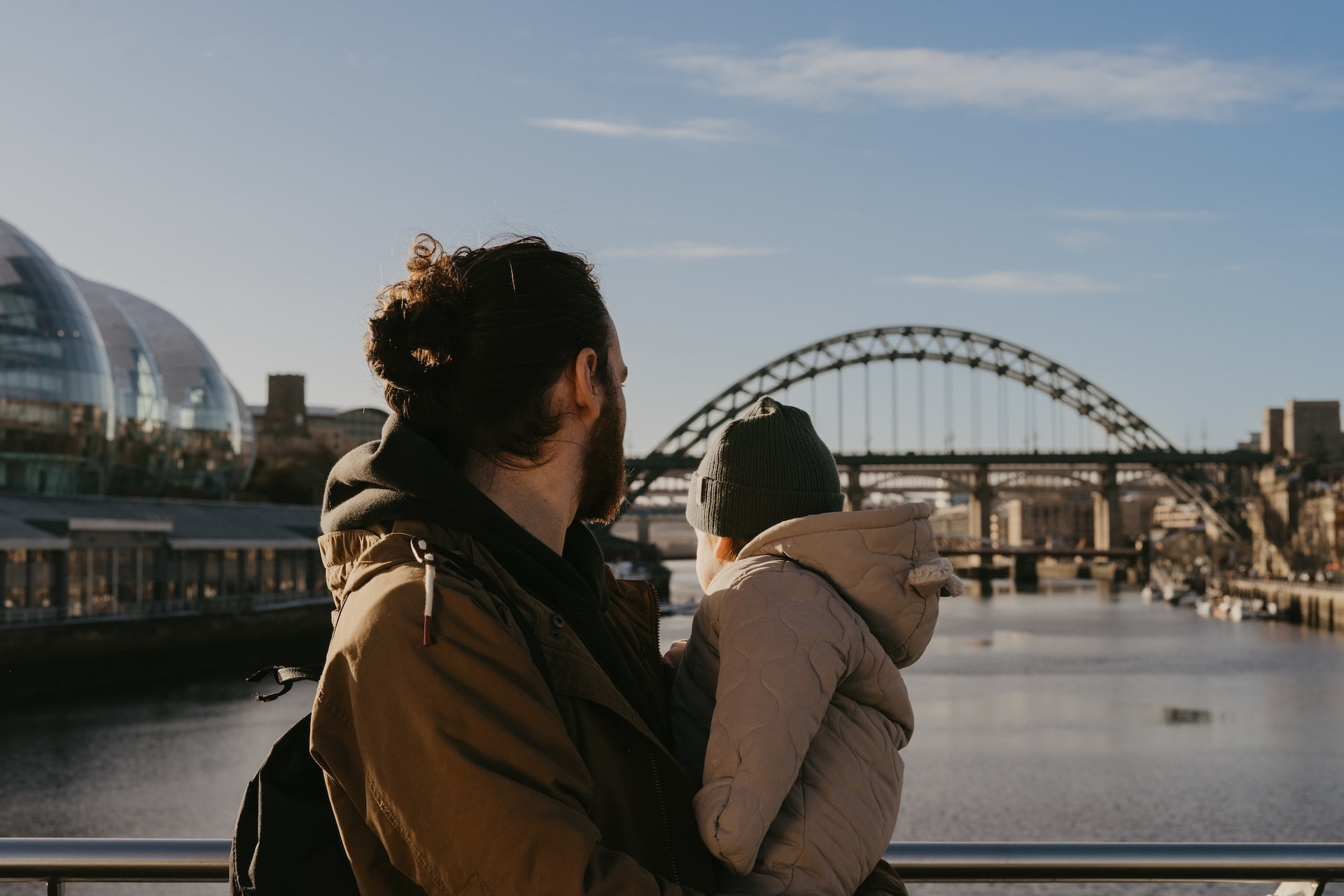What do job interviews, encountering a snake, meeting new people, taking exams, driving in an unfamiliar part of town, going on a first date, and getting a call from your doctor with test results all have in common? At first glance these things just seem like a random jumble of situations one might encounter. However, what they have in common is that they are all situations in which you may have to cope with anxiety.
 For different people, anxiety is triggered by different situations and even by ingesting drinks with caffeine. Anxiety can be mild, but it can also be so intense that it gets classified as an anxiety disorder by a mental health professional. When anxiety is intense and frequent, it can be a challenge for performing everyday tasks like going to work or school. Thankfully, there are several highly effective ways to cope with anxiety.
For different people, anxiety is triggered by different situations and even by ingesting drinks with caffeine. Anxiety can be mild, but it can also be so intense that it gets classified as an anxiety disorder by a mental health professional. When anxiety is intense and frequent, it can be a challenge for performing everyday tasks like going to work or school. Thankfully, there are several highly effective ways to cope with anxiety.
Is Anxiety Good?
Our bodies have the capacity to perceive threats, whether of the physical or mental sort. The decision-making part of your brain determines the existence of a potential threat. This triggers a response in the amygdala, the part of the brain which helps to regulate emotion and process fearful or threatening stimuli. The amygdala instructs the hypothalamus to initiate the fight-or-flight response that gets us ready to either stand our ground and fight or flee the situation.
When anxiety triggers your flight-or-fight stress response, your body releases hormones such as adrenaline into your system. What this does in the short term is to increase your pulse and breathing rate to allow your brain and muscles to get more oxygen and prepare you to respond appropriately to a fearful and intense situation.
Typical anxiety helps a person respond to perceived and real threats, and it lasts for a brief period. It helps us to deal with danger, and in that way, anxiety is good for us.
Knowing when anxiety becomes unhelpful.
Anxiety is good and helpful when we have it in small doses. But anxiety can become unhelpful when one experiences it too often or persistently. When one experiences the intense emotions associated with anxiety for prolonged periods of time, it can impact day-to-day living in significant ways. When anxiety acts in this way, it is often diagnosed as an anxiety disorder. Anxiety is one of the most common mental health conditions in the U.S.
There are different types of anxiety disorders, and these include generalized anxiety disorder, panic disorder and phobia-related disorders such as social anxiety disorder. Generalized anxiety disorder is the most common type of anxiety disorder, and it often involves persistent worries that revolve around nonspecific life events and situations.
 The causes of chronic anxiety and anxiety disorders is not fully known, though there may be genetic, physiological, and environmental aspects to it. Physiologically, the limbic system, which is comprised of the amygdala, hippocampus, hypothalamus, and thalamus, is largely responsible for processing emotions, and researchers have found that individuals with anxiety disorders tend to have more activity in their limbic system.
The causes of chronic anxiety and anxiety disorders is not fully known, though there may be genetic, physiological, and environmental aspects to it. Physiologically, the limbic system, which is comprised of the amygdala, hippocampus, hypothalamus, and thalamus, is largely responsible for processing emotions, and researchers have found that individuals with anxiety disorders tend to have more activity in their limbic system.
Ways to cope with anxiety.
If you’re dealing with anxiety or an anxiety disorder, there are several ways to cope with it. Some of the changes you can implement involve changes to your lifestyle, but they may include therapy and medication as well where that’s helpful. Below are several helpful ways to cope with anxiety:
Exercise. Get regular exercise because exercise decreases stress hormones and gives you an outlet for nervous energy. Not only that, but exercise helps elevate your mood.
Sleep. Consistent and good sleep is a must, as it helps you with regulating your mood.
Watch what you eat and drink. Your diet has an impact on your health, physically, mentally, and emotionally. For instance, processed food can depress your mood and make you sad, while alcohol can stimulate feelings of anxiety, and caffeine can trigger anxiety.
Understand your triggers. Some people are triggered by social gatherings, while for others taking in some caffeine can trigger their anxiety, and still others don’t like crowded places. When you know what triggers your anxiety, that can help you prepare for those situations that you know are coming up. When your mind is prepared for what is coming, it helps you deal with the discomfort much better.
Learning coping and relaxation techniques. Anxiety makes your body tense, among other physiological changes. Through techniques such as progressive muscle relaxation, deep breathing techniques such as 4-7-8, visualization, and meditation can help you to manage your anxiety.
A deep breathing technique like the 4-7-8 (in which you inhale through your nose as you count to 4, hold your breath for 7 counts, then exhale for an 8 count) can help you to calm down and quiet the negative thoughts that so often attend anxiety.
Don’t avoid your triggers. While it may seem best to avoid the things that make you anxious, doing this only serves to deepen your anxiety and its hold on you. With the guidance of a trained counselor, for instance, you can gradually expose yourself to the things that cause you anxiety. This can help you feel less anxious in those situations.
 Embrace change. One of the areas that raise anxiety is when things change, because that introduces unpredictability. Instead of feeling threatened by change, you can embrace it by looking at it as an opportunity to explore new things and grow. No doubt this requires a change in mindset and the willingness to meet change head-on.
Embrace change. One of the areas that raise anxiety is when things change, because that introduces unpredictability. Instead of feeling threatened by change, you can embrace it by looking at it as an opportunity to explore new things and grow. No doubt this requires a change in mindset and the willingness to meet change head-on.
Disrupt your anxious thoughts. We can have settled patterns of thinking that allow anxiety to persist and thrive. If your friend leaves you a message saying they want to talk, you can begin a train of thought that will leave you feeling anxious. You can actively disrupt this flow of thought by reminding yourself that you don’t know what they want to talk about, nor does it have to be negative.
One of the ways to learn how to disrupt your anxious thoughts is through cognitive behavioral therapy. This helps people learn coping patterns even as it helps them identify unhealthy patterns of thoughts and replace these with positive and constructive ones.
Journaling. Another technique that helps one to cope well with anxiety is journaling, whether on an electronic device or an old-school paper journal. Just getting your thoughts onto the page, whether they are negative or otherwise, is a form of release which can help you break the cycle of anxious thoughts.
Medication. If your doctor prescribes medication, it can be a huge help for getting the symptoms of anxiety under control. Medications such as serotonin and norepinephrine reuptake inhibitors block serotonin and norepinephrine absorption, while other medications such as benzodiazepines provide fast-acting relief for tension by acting as a muscle relaxant.
Scripture. In addition to these ways of coping with anxiety, Scripture can help one cope with anxiety as well as challenge unhelpful and untrue patterns of thought. The passages below may be helpful for you as you deal with anxiety, and whether singly or in combination with professional mental health care, they can help bring your anxiety under control.
Do not be anxious about anything, but in every situation, by prayer and petition, with thanksgiving, present your requests to God. And the peace of God, which transcends all understanding, will guard your hearts and your minds in Christ Jesus. – Philippians 4:6-7, NIV
In this verse, Paul encourages a mindset of taking our concerns to God through prayer and trusting Him to meet us in our need with His peace. Both prayer and the mindset of thanksgiving with which that prayer is given help to counter negative thoughts and disrupt ways of thinking that aren’t helpful.
And which of you by being anxious can add a single hour to his span of life? – Matthew 6:27, ESV
The Lord Jesus cuts through the noise and gets to the heart of the matter – the anxiety that besets us daily adds nothing to our lives, and it is of no benefit to us. In asking this question, Jesus compels us to consider our actions and the beliefs that undergird them.
nothing to our lives, and it is of no benefit to us. In asking this question, Jesus compels us to consider our actions and the beliefs that undergird them.
We do the things we do because we feel that in some way they are of some benefit to us. What benefit do we think we’re getting from indulging our anxious thoughts, and what is the reality?
Anxiety neither enriches nor extends our lives; instead, when we’re anxious it affects our mental, physical, and emotional health, diminishing our enjoyment of life and possibly its span, too.
Anxiety will often feel like the responsible and caring thing to do, and it also gives us the sense that we’re doing something in a situation that’s out of our hands. Some part of us feels rewarded by entertaining anxious thoughts, and is part of what Jesus disrupts by asking His potent question – can you add an hour to your span of life by worrying? God, who is in control of every circumstance in your life, loves you, and so you don’t have to be anxious about anything.
Finding help to cope with anxiety.
Anxiety can be a good thing, but when anxiety dominates your life, it undermines your wellbeing. If anxiety is disrupting your daily functioning, you may need a diagnosis from a mental health professional to determine if you have an anxiety disorder. If your anxiety is mild, many of the coping techniques mentioned above will be helpful and effective for coping with anxiety.
To work through your anxiety, it is helpful to understand it, and one meaningful avenue for that is to get counseling. Whether through individual or group counseling for anxiety, your counselor will create a treatment plan that will help you get your anxiety under control. That plan may include medication, lifestyle changes, and therapy.
Christian counseling for anxiety is designed to empower you to handle your anxiety and help you achieve your potential from a faith-based perspective. If you want to find out more about anxiety, or you want to begin journeying with a professional to rein your anxiety in, reach out to a counselor to make inquiries or book an appointment today.
“Coffee”, Courtesy of Nini Fromparis, Unsplash.com, Unsplash+ License; “Depressed”, Courtesy of Joice Kelly, Unsplash.com, CC0 License; “Stressed”, Courtesy of Kayla Koss, Unsplash.com, CC0 License; “Sightseeing”, Courtesy of Toa Heftiba, Unsplash.com, CC0 License;
-
Kate Motaung: Curator
Kate Motaung is the Senior Writer, Editor, and Content Manager for a multi-state company. She is the author of several books including Letters to Grief, 101 Prayers for Comfort in Difficult Times, and A Place to Land: A Story of Longing and Belonging...
Recent Posts
DISCLAIMER: THIS ARTICLE DOES NOT PROVIDE MEDICAL ADVICE
Articles are intended for informational purposes only and do not constitute medical advice; the content is not intended to be a substitute for professional medical advice, diagnosis, or treatment. All opinions expressed by authors and quoted sources are their own and do not necessarily reflect the opinions of the editors, publishers or editorial boards of Stone Oak Christian Counseling. This website does not recommend or endorse any specific tests, physicians, products, procedures, opinions, or other information that may be mentioned on the Site. Reliance on any information provided by this website is solely at your own risk.





